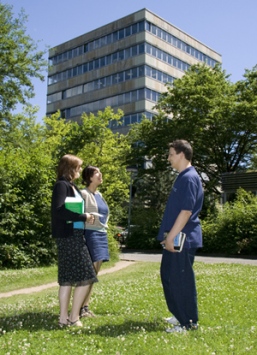 By Samita Sarkar
By Samita Sarkar
Some time ago, when I was a student at York University, an English professor warned us against the dangers of having our papers professionally edited, equating it with co-writing and plagiarism. I wondered if this were true, since various editing businesses openly distributed their cards around campus. When I opened my editing business a few months ago, I realized there was a high demand for editing papers, theses, and academic journal submissions, so as a new business person I had to re-evaluate my professor’s advice. That same professor had thought that online courses promoted “lazy learning,” so maybe I didn’t have to agree with her on everything! After all, there is a huge difference between writing and editing.
Still, an editor must consider a number of things before agreeing to take on an assignment in academics, whether it involves an essay, a thesis, or a journal submission. In this field in particular, it is especially important to draw an ethical line as to where editing ends and rewriting begins.
Before accepting a project in academics, or indeed in any field, editors should ask their client to sign a contract that makes it crystal clear to all parties what will and will not be done as part of the editorial assignment. The sample contract provided on the EAC website is a great place to start; it includes an indemnity clause which protects editors from issues such as copyright infringement on the part of the author. The EAC document also provides guidelines for ethical editing of dissertations. As an added safeguard, editors can ask students to have their professor or supervisor co-sign a contract before editing commences.
Brendan Brown, founder of the editing company Global English Editing, takes a hard-line stance on his company blog in favour of academic editing, stating that hiring a professional editor should be encouraged among students—in fact, he believes it is mandatory if English is the student’s second language, because that will ensure such students are being marked for their ideas, not their grammar. Opposing the views of my former professor, in his blog post Brown marks a clear distinction between writing and editing:
Let’s be clear, paying for written content and claiming that it’s yours in education is cheating. If those ideas don’t belong to you, it’s academic fraud. But, when you toss a paper with your points into the metaphorical washing machine, and it comes back cleaner and better, why is this unethical? If using your resources to make use of a valuable tool, in this case an editor, to refine the sludge of a rough draft, is considered unethical, how is that separate from peer review?
Not surprisingly, editors who list academic editing as one of their specialties tend to be in favour of students hiring editors. And of course, many academic editors would be insulted by the insinuation that editing a paper is akin to writing one. But how do other professors feel on the subject?
York University Professional Writing professor Mike O’Connor states that although he has a problem with his students hiring essay writers, he wouldn’t mind if a student hired an editor: “If the editor is simply copy editing and providing feedback to the student about organization and clarity, where the student would be undertaking any rewrites, I would be fine with that arrangement.”
On the other hand, Paul McLaughlin, another York University professor in the Professional Writing program, has mixed feelings about students hiring editors: “I’d be happy that they realized they needed help,” he remarks, but if they are seeking an editorial career, hiring an essay editor would produce a “short-term benefit that’s going to be a long-term problem. They will be the ones that employers assume know how to edit. If they haven’t learned how to edit, they could be seen as not competent in their field.” However, if the student were taking a course in an unrelated subject, such as economics or sciences, McLaughlin says he might feel a little differently.
Academic editing can be both fun and lucrative. Personally, I enjoy academic editing because it gives me the opportunity to read and learn about a variety of specialized subjects as I edit. Even so, as with any client, before taking on such assignments, you must first make sure to clarify with the client exactly what their expectations are so that you can evaluate if and how you can most effectively help them reach their goals. Contracts are helpful in this regard. Asking the right questions and outlining specifically what we will do for our clients in an editorial assignment is so crucial not only because it ensures mutual protection, but also because it leads to greater customer satisfaction.
Samita Sarkar is the owner of Blossoms Editing Services. She specializes in editing scientific texts and documents.
This article was copy edited by Sylvia McCluskey.

Can truly relate and retain this outstanding post. Very well written.
LikeLike